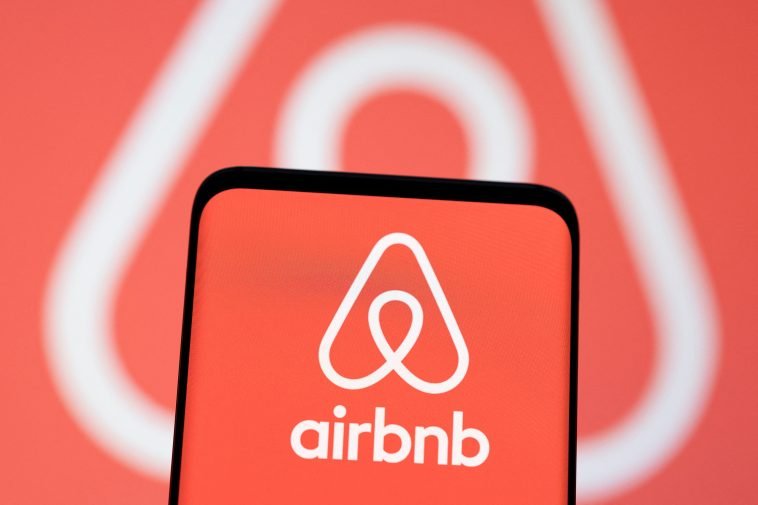Introduction.
Renting out your property on Airbnb can be a lucrative venture, offering you the opportunity to generate extra income and make the most of your investment.
With the rise of the sharing economy, platforms like Airbnb have revolutionized the way people travel and seek accommodation.
Whether you’re a homeowner looking to capitalize on an unused property or someone considering investing in real estate solely for short-term rentals, this guide will provide you with valuable insights on how to rent a house and put it on Airbnb.
Hey there, dear reader! We hope you’re enjoying the content on our blog. Did you know we have a treasure trove of other insightful articles waiting for you?
Check out the link to the articles below to learn how to be productive and scale your Airbnb business.
- How To Start a Blog and Make Money
- How To Start a Blog With ChatGPT
- How To Start an LLC For Your Airbnb Business
- How To Be Safe In an Airbnb
- How To Be a Super Host On Airbnb
- How To Rent Airbnb Long Term
- How To Manage Your Airbnb Properties
- How To Increase My Airbnb Occupancy
- How To Advertise Your Airbnb Listing
- How To Build an Airbnb Empire
- How To Rent Airbnb Long Term
- How To Make Your Airbnb Stand Out: Unlocking the Secrets to Exceptional Hosting
How Do I Rent a House and Put It on Airbnb?
Renting out your house on Airbnb can be an excellent way to generate extra income and make the most of your property investment.
Whether you’re a homeowner with an unused property or someone considering investing in real estate solely for short-term rentals, this article will guide you through the process of renting a house and putting it on Airbnb.
1. Prepare Your House for Airbnb Rental.
Before listing your house on Airbnb, it’s crucial to make it appealing to potential guests. Start by thoroughly cleaning the entire property and decluttering any personal items.
Create a welcoming atmosphere by adding desirable amenities such as high-quality bedding, toiletries, Wi-Fi, and a well-equipped kitchen.
Consider adding special touches like local artwork or guidebooks to enhance the guest experience.
Lastly, stage your house to showcase its best features and create an inviting ambience that makes guests feel at home.
2. Set Up Your Airbnb Listing.
Creating a compelling Airbnb listing is essential for attracting guests. Begin by setting up an Airbnb profile and verifying your identity.
Write a detailed and engaging description of your property, highlighting its unique features, nearby attractions, and any special amenities you offer.
Use high-quality photos that showcase each room, capturing the property’s best angles and natural lighting.
Determine competitive pricing by researching similar listings in your area and considering factors such as location, size, and amenities. Lastly, choose your availability settings and house rules to manage guest expectations.
3. Manage Bookings and Guest Interactions.
Once your listing is live, you’ll start receiving inquiries and booking requests. Promptly respond to guest inquiries and be transparent about any specific details or requirements.
Establish clear communication channels, such as email or messaging within the Airbnb platform, and promptly answer any questions guests may have.
Be flexible with check-in and check-out times whenever possible to accommodate guests’ needs. When guests arrive, provide a warm welcome and a thorough introduction to the property.
Throughout their stay, maintain open lines of communication to address any concerns promptly.
4. Ensure Legal Compliance and Safety.
Renting out your house on Airbnb comes with legal and safety considerations. Familiarize yourself with local regulations regarding short-term rentals and ensure compliance with any necessary permits or licenses.
Consult with local authorities or legal professionals to understand the specific requirements in your area.
Additionally, consider implementing safety measures to protect your guests and property, such as installing smoke detectors, fire extinguishers, and secure entry systems.
Review your insurance coverage to ensure it includes short-term rental activities and liability protection.
5. Maximize Revenue and Manage Property Maintenance.
To maximize your rental income, it’s important to stay competitive and continually improve your property’s appeal.
Regularly review and adjust your pricing strategy based on factors such as seasonality, demand, and local events.
Consider offering discounts for longer stays or implementing dynamic pricing to capitalize on peak periods. Maintain your property through regular cleaning services and prompt repairs.
Address guest feedback constructively to enhance the guest experience and improve your overall rating.
Consider going the extra mile by providing additional services like local recommendations or organizing activities for guests.
6. Provide Excellent Customer Service.
Exceptional customer service is key to ensuring guest satisfaction and receiving positive reviews. Be responsive to guest inquiries and requests, striving to address them promptly and efficiently.
Consider going above and beyond by offering personalized recommendations for local attractions, restaurants, or activities that align with your guests’ interests.
Make their stay memorable by providing small touches such as welcome baskets, handwritten notes, or a guidebook with helpful information about the neighbourhood.
Respond to guest reviews professionally and courteously, thanking them for their feedback and addressing any concerns raised.
7. Market Your Airbnb Listing.
While Airbnb provides a platform for exposure, it’s essential to take additional steps to market your listing and attract more potential guests.
Leverage social media platforms by creating a dedicated account for your rental property and showcasing its unique features and experiences.
Engage with travel and local community groups online, sharing your listing and offering valuable insights or advice.
Consider partnering with local businesses, tourist attractions, or event organizers to cross-promote your property.
Utilize professional photography services or create virtual tours to enhance the visual appeal of your listing and differentiate it from the competition.
8. Build Positive Reviews and Ratings.
Positive reviews and high ratings play a significant role in attracting new guests and establishing trust in your property.
Encourage guests to leave reviews by providing a friendly reminder at the end of their stay or following up with a thank-you message.
Ensure that you deliver on the promises made in your listing and strive to exceed guests’ expectations.
Respond to reviews promptly and professionally, addressing any concerns raised and expressing gratitude for the positive feedback.
Continuously improving your guests’ experience will contribute to a growing number of positive reviews, enhancing your property’s reputation and attracting more bookings.
9. Consider Outsourcing Property Management.
As your rental business grows, you may find it challenging to handle all aspects of managing your property on your own.
Consider outsourcing certain tasks such as cleaning, maintenance, and guest communication to professional property management companies.
These companies specialize in managing short-term rentals and can help streamline operations, ensure consistent quality, and free up your time to focus on other aspects of your business or personal life.
Evaluate the cost-benefit of outsourcing and choose a reputable property management company that aligns with your goals and values.
10. Stay Informed and Adapt.
The vacation rental landscape is continuously evolving, with new trends, regulations, and market dynamics emerging.
Stay informed about changes in local regulations, taxation laws, and Airbnb policies to ensure ongoing compliance.
Keep an eye on market trends, including shifts in demand, emerging travel preferences, and new competitors in your area.
Continuously assess and adapt your rental strategy to optimize revenue and ensure the long-term success of your Airbnb venture.
Conclusion.
Renting a house and putting it on Airbnb can be a rewarding and profitable venture when approached with careful planning and attention to detail.
By following these steps and continuously refining your approach, you can create a successful and enjoyable experience for both yourself and your guests.
Embrace the opportunity to share your property with travellers from around the world, showcase the unique aspects of your community, and unlock the financial potential of your investment.
Hey there, dear reader! We hope you’re enjoying the content on our blog. Did you know we have a treasure trove of other insightful articles waiting for you?
Check out the link to the articles below to learn how to be productive and scale your Airbnb business.
- How To Start a Blog and Make Money
- How To Start a Blog With ChatGPT
- How To Start an LLC For Your Airbnb Business
- How To Be Safe In an Airbnb
- How To Be a Super Host On Airbnb
- How To Rent Airbnb Long Term
- How To Manage Your Airbnb Properties
- How To Increase My Airbnb Occupancy
- How To Advertise Your Airbnb Listing
- How To Build an Airbnb Empire
- How To Rent Airbnb Long Term
- How To Make Your Airbnb Stand Out: Unlocking the Secrets to Exceptional Hosting






GIPHY App Key not set. Please check settings